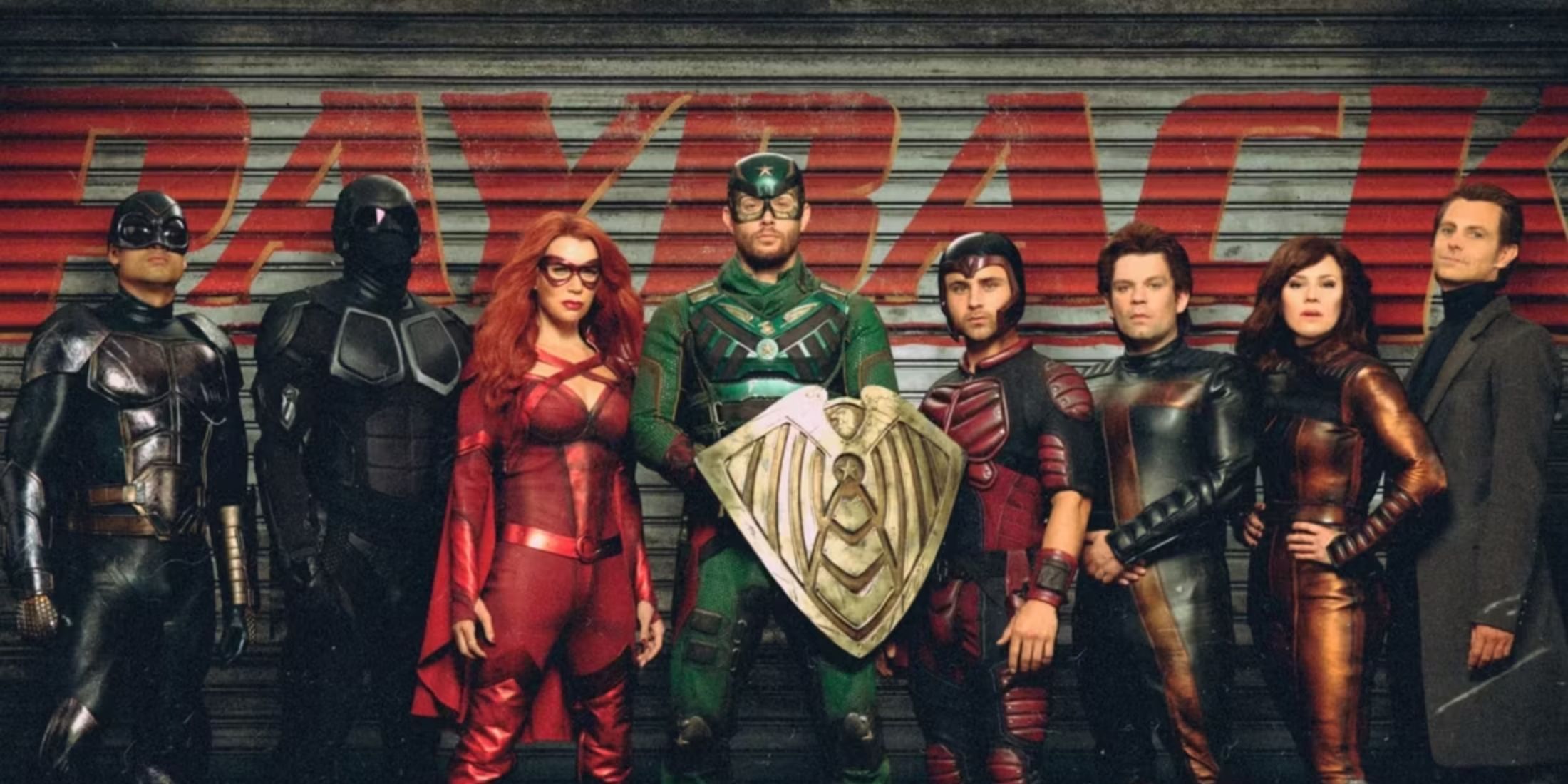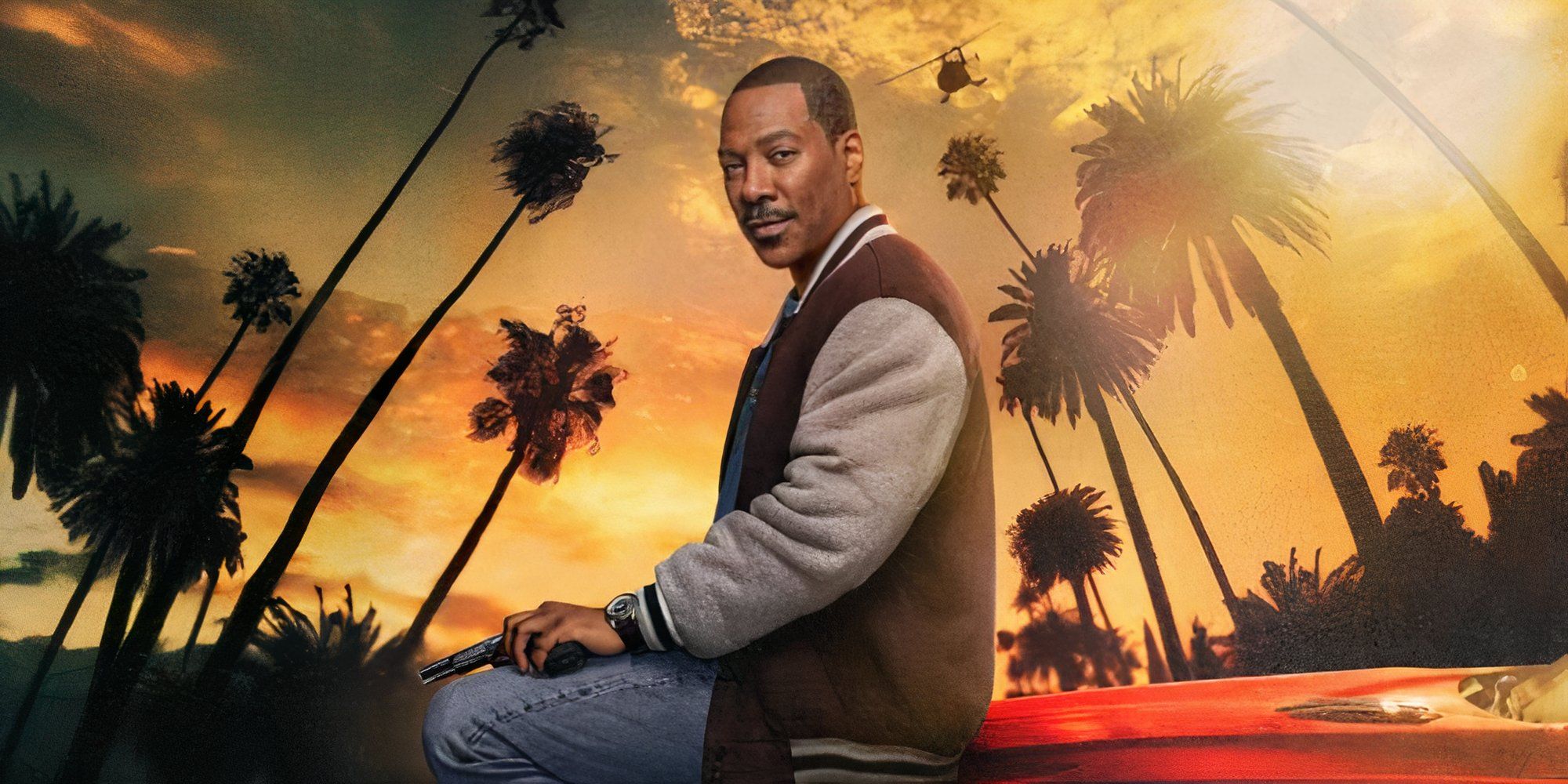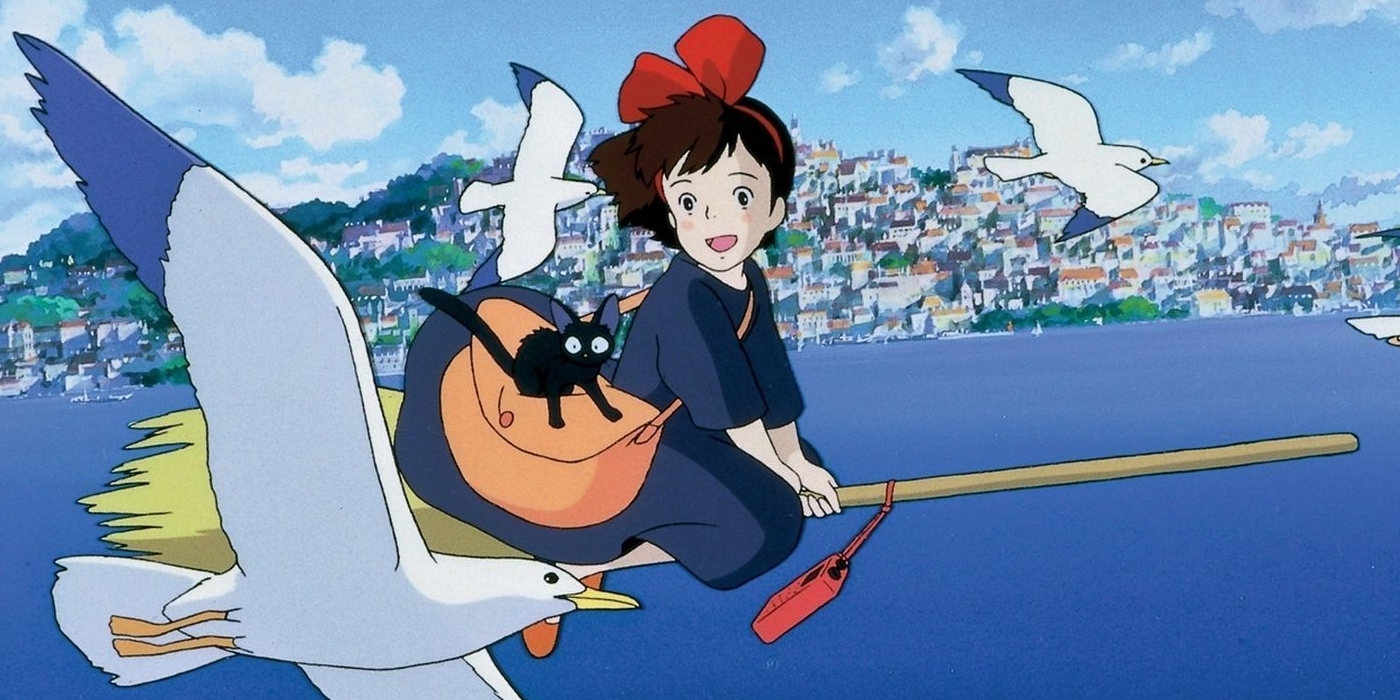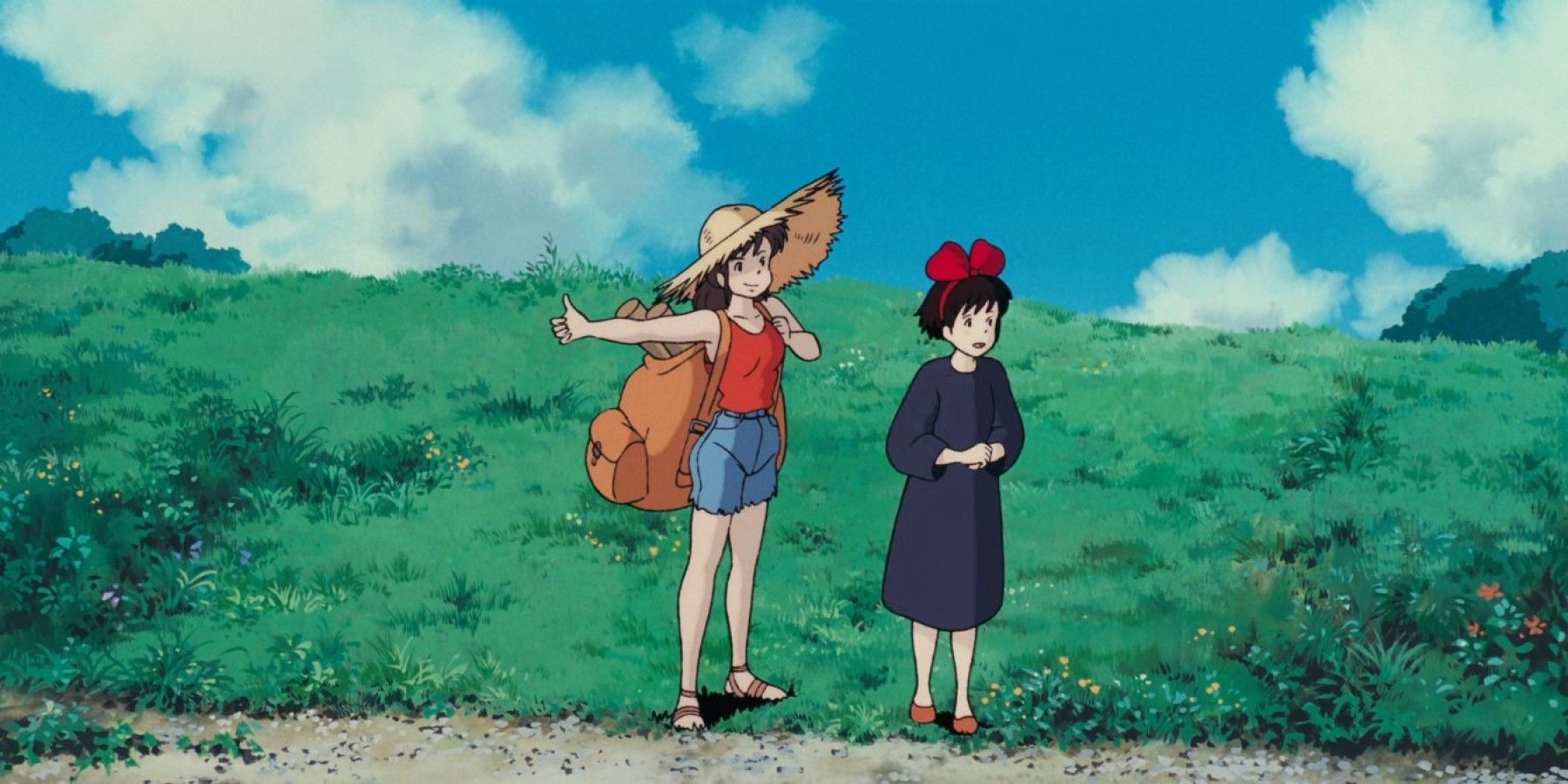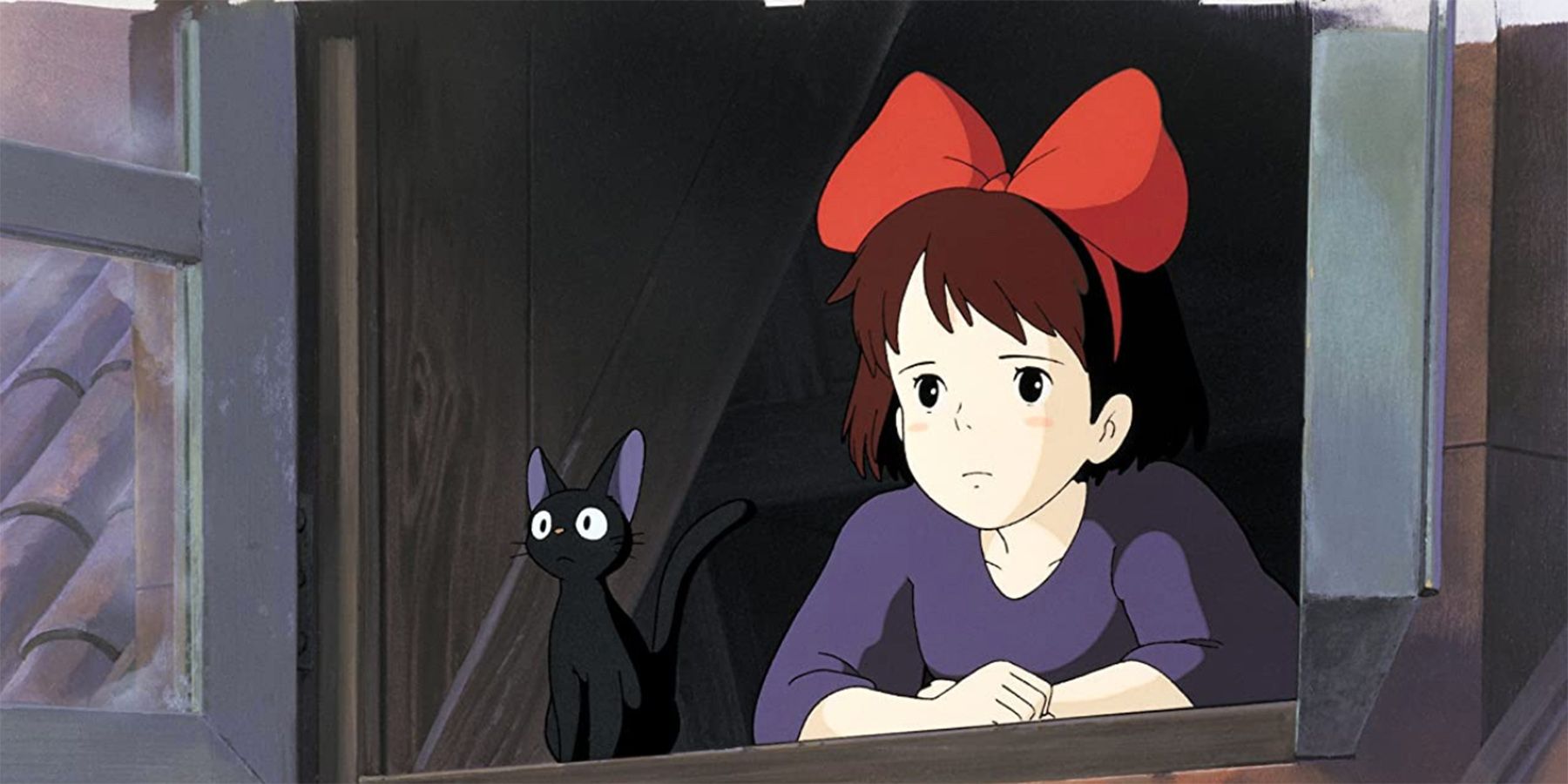Highlights
- Kiki's Delivery Service is a layered story that explores themes of growing up, loneliness, and the struggle to adjust to change.
- The film challenges the misconception that Studio Ghibli movies are light and fluffy, showcasing internal conflicts and deeper emotions.
- Kiki's journey teaches the audience the importance of embracing change and finding beauty in the present, rather than comparing it to the past.
Kiki's Delivery Service is one of Studio Ghibli's most iconic films, and for good reason. It is a beautiful story about growing up and feeling isolated, with some fun magic mixed in to keep things feeling wondrous. The film does, however, have a bit of a reputation for being simple and silly, which isn't really the case at all. Kiki's Delivery Service is a layered story with quite a bit of sadness beneath the surface. It's a nostalgic sadness, however, and certainly not the kind that would bring anyone down, but rather the kind that might make them reflect on times they can no longer get back to.
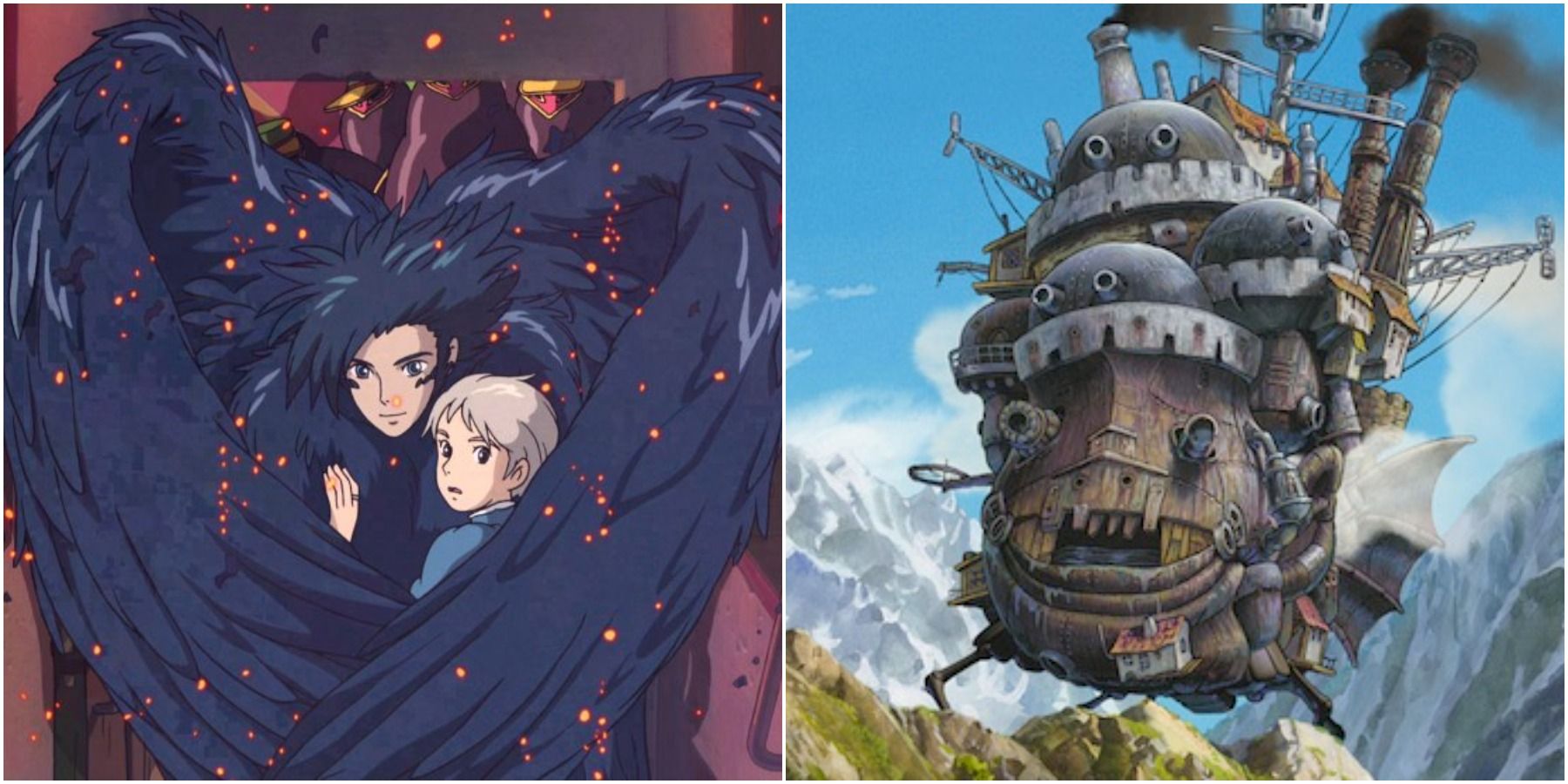
Why Hayao Miyazaki Thought Howl's Moving Castle Would Be Unpopular In The United States
Howl's Moving Castle is a beloved film, but Hayao Miyazaki had doubts that it would be popular in the United State due to political reasons.
The Story of Kiki's Delivery Service
Kiki's Delivery Service | |
|---|---|
Director | Hayao Miyazaki |
Writer | Hayao Miyazaki, based on Kiki's Delivery Service by Eiko Kadono |
Japanese Voice Cast | Minami Takayama, Rei Sakuma, Keiko Toda, Minami Takayama, Kappei Yamaguchi |
1997 English Voice Cast | Kirsten Dunst, Phil Hartman, Tress MacNeille, Janean Garofalo, Matthew Lawrence |
Release Date | July 29, 1989 |
Runtime | 102 Minutes |
Box Office | $41.8 Million |
The story begins when Kiki, a witch in training, turns thirteen years old. As is custom, she is to leave home for a year and find a city to set up a shop of some kind in to develop her abilities. She flies off on her broomstick, accompanied by her talking cat, Jiji. While she initially struggles to adjust to her new surroundings, she finds lodging with a couple at a bakery and opens up a delivery service, using her ability to fly. Kiki also meets a boy named Tombo, who is obsessed with aviation and takes a liking to her immediately.
Kiki's first delivery goes south quickly. She is tasked with delivering a toy cat for a boy's birthday party, but loses the plush when she is attacked by a flock of magpies. Jiji is forced to pose as the toy while Kiki delves into the woods to find it, which she does thanks to a painter named Ursula. She manages to swap the real toy out for Jiji, and for a while her life is on the up and up. Her delivery service is growing in popularity and she feels happy.
Kiki gets invited to a party by Tombo and decides to go, but on her way to the party following a delivery, she gets caught in a rainstorm. She falls ill afterward and misses the party. Later, she goes to apologize to Tombo and bonds with him over his aircraft, but is intimidated by his friend group and leaves suddenly. As her deliveries mount in number, Kiki begins to grow depressed. She discovers that she can no longer hear Jiji speak and loses her ability to fly on her broomstick, forcing her to shut down her delivery service. As she sits around sadly, she sees an airship crash on the news and notices Tombo hanging onto a rope suspended from the ship. Kiki manages to rekindle her flying ability just enough to rescue Tombo from falling, and subsequently reopens her delivery business.
Kiki, Growing Up, and Change
There is an irritatingly common idea that Studio Ghibli's films are nothing but light and fluffy comfort movies, full of nice, wholesome vibes and no real stakes or conflict. The obvious response to this point would be to suggest that the person making it watch Grave of the Fireflies. However, every one of Studio Ghibli's movies has deeply political themes and no shortage of conflict. The conflict is more often than not internal, which is what leads to the misconception that these movies are purely comfortable. A conflict between two opposing characters is much easier for many people to visualize. When the source of tension is a villain who the hero has to battle and defeat, the conflict is impossible not to see.
Kiki's Delivery Service is not only entirely centered around internal conflict, but seems to go out of its way to explicitly state this objective. As Kiki flies through the night sky in search of a city to set up shop in, she encounters another young witch. This witch is rude and condescending towards Kiki, bragging about her higher level of experience. In a moment where Kiki could use some guidance from someone who has done this before, this witch simply belittles Kiki and flies off.
In a lesser film, this young lady would have popped back up later and become an antagonist. Kiki would have discovered that she happened to pick the same city as her and the two would clash multiple times. In actuality, this witch never shows up again. The core of the film is not Kiki's feud with another witch. The core of the film is Kiki's insecurity, her loneliness, her difficulty adjusting to the changing world around her. Perhaps the witch's comments added fuel to the fire, but they are not the cause of Kiki's problems. Those come from within.
Kiki's struggle is fundamentally based in contradiction, the contradictions everyone faces when they look to make changes to their lives. There is always a fine line to be drawn between taking risks and remaining comfortable, and this is the core of Kiki's internal conflict. Kiki wants to meet her expectations as a witch and build a successful life by herself in the city. The unfamiliarity is the point, and something Kiki was so excited for that she embarked on her journey earlier than her parents wanted her to. Her new setting, however, brings loneliness. She feels out of place without her old friends and family and longs for the safety of knowing she can fall back on her parents. Her delivery business becomes successful, which of course was her goal, but the stress of managing a popular business overwhelms her. Kiki wants to grow up quickly, but she discovers that the workload is not as fun as she would have hoped for.
Kiki's loss of purpose and depression stem from the disenchantment she feels over her new life. It isn't that she failed at her goal. She succeeded, but success did not bring her happiness. Her magic powers begin to fade because being a witch has lost its meaning for her. The goal of a witch is to start a magical service in a new city. Kiki has done this, but doing so has made her miserable, and what good is being something if it doesn't bring satisfaction? In her view, change has destroyed her.
Without even thinking about it, I used to be able to fly. Now I'm trying to look inside myself and find out how I did it.
What brings magic back to Kiki's life is the rediscovery of who she is in spite of the ways she has changed. Her ability to save Tombo's life shifts her perspective. Had she not come to the city, no one else would have been able to rescue him in the way she was capable of. Kiki realizes that change can be sad, but the new things that it leads to can also be beautiful and important. She may still miss the people she left behind, but the new relationships she has formed are meaningful too. Change is necessary, and more than that, it is constant. Kiki ends the film no longer looking at her life as having gone from one state to a worse state. Her new life in the city is not everything she ever longed for, but that's okay, because someday, that will change to something else too.
Kiki's Delivery Service teaches that the beauty of life lies not in comparing what is now to what once was, but in appreciating the way things are now for what they are. Many movies would take the easy way out and allow Kiki to talk with Jiji again when she regains her magic. Kiki's Delivery Service is brave enough to not let this happen. Kiki will never be able to understand Jiji again, but that's okay! The two still love one another, and Jiji is happy in the new life he has formed with another cat. Change is certainly scary, but something is not beautiful because it is permanent. Indeed, it is the fleeting nature of a moment that makes it meaningful. If new friends are to be made and self discovery is to happen, the old must be allowed to give way for the new.

